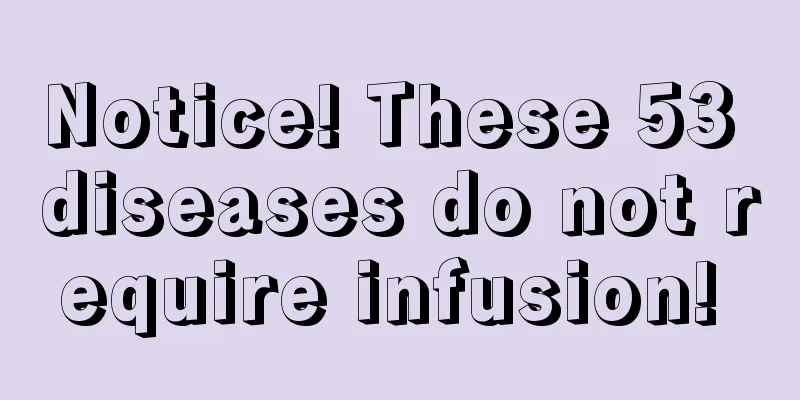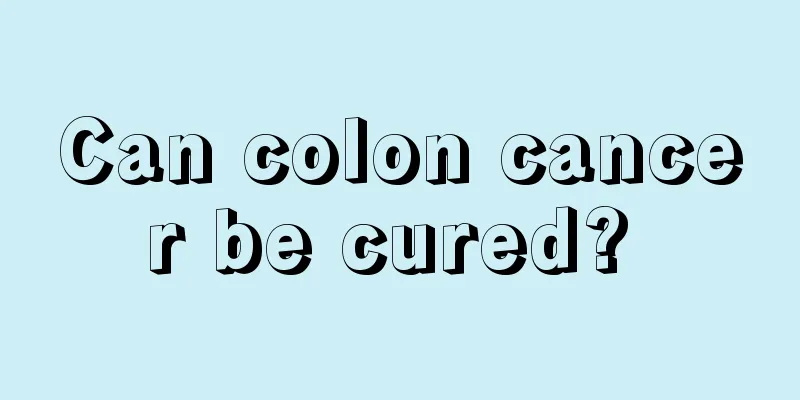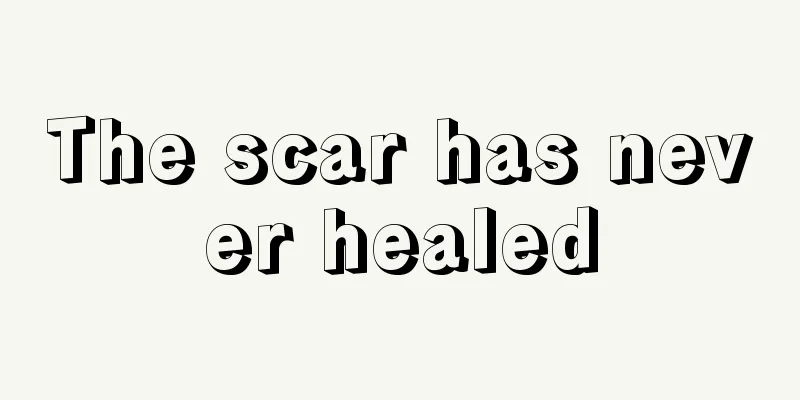Notice! These 53 diseases do not require infusion!

|
The Anhui Provincial Health and Family Planning Commission released a list of “53 diseases that do not require infusion”. Among them, common and frequently occurring diseases, some surgical and gynecological inflammations, and children's diseases clearly do not require the use of antibiotic infusions. Experts say that some "inflammations" are not bacterial infections and antibiotics are ineffective. This is an officially released list. It is rigorous and has reference value. It is worth collecting a copy. ● Internal Medicine 1Upper respiratory tract infection: common cold, viral pharyngitis 2Acute tracheobronchitis, body temperature below 38°C 3. Bronchiectasis without acute inflammation 4 Bronchial asthma is in the chronic persistent stage and remission stage 5 Pulmonary tuberculosis (except disseminated pulmonary tuberculosis) 6Interstitial lung disease without obvious respiratory distress 7COPD remission 8 Uncomplicated varicella, mumps, rubella 9 Hypertensive urgency 10Chronic superficial gastritis 11 Non-infectious diarrhea with anhydration and electrolyte imbalance 12Simple Helicobacter pylori infection 13 Mild colitis 14 Uncomplicated peptic ulcer 15 Mild liver impairment with clear etiology 16 No organic lesions were found after multiple visits to the doctor, so functional gastrointestinal disease was considered 17 Acute cystitis 18 Spontaneous pneumothorax without complications 19Simple premature ejaculation and ventricular premature ejaculation 20 Endocrine and metabolic diseases without acute complications 21 Alzheimer's disease without special complications, hemifacial spasm, motor neuron disease, multiple tics, sleep disorders, anxiety, depression, migraine 22 Epilepsy (except status epilepticus and frequent epileptic seizures) 23 Primary and secondary prevention of cerebrovascular diseases without special complications (non-acute stage of cerebrovascular diseases) 24 Renal anemia, nephrotic syndrome, chronic glomerulonephritis, proteinuria without special complications Interpretation: Antibiotics are only useful when bacteria cause inflammation Experts say that there are four major types of stimuli that cause inflammation: biological (bacteria, viruses, parasites), physical, chemical, and immune overload. Among diseases with "inflammation", only those caused by bacteria will be effectively treated with sensitive antibiotics. Colds, mumps, etc. are caused by viruses and antibiotics are ineffective. Inflammation caused by physical or chemical factors, such as pharyngitis, is sometimes caused by talking too much, eating spicy food, etc., and generally does not require the use of antibiotics. ● Surgery 1After resection of superficial tumor 2 Mild surface infection (no fever, normal blood count) 3 Mild soft tissue contusion 4 After minor body surface debridement 5. Superficial phlebitis 6. Osteoarthritis in the elderly 7 Non-acute lumbar disc herniation and spinal stenosis 8Limb fractures treated with closed non-surgical methods 9Chronic strain diseases 10. Chronic cystitis 11Chronic prostatitis 12. Prostatic hyperplasia 13. Kidney stones without complications 14. Seminal vesiculitis 15Acute rhinitis, various types of chronic rhinosinusitis, allergic rhinitis, acute sinusitis without complications 16Acute simple pharyngitis, chronic pharyngitis, acute simple tonsillitis 17 Acute laryngitis (except severe cases), chronic laryngitis 18 Acute and chronic external otitis, acute and chronic otitis media without complications, external auditory canal eczema, myringitis Interpretation: Surgery is the hardest hit area for antibiotics It is reported that surgical departments have become the hardest hit areas for antibiotics. Data show that the use rate of antibiotics among hospitalized patients in my country has reached 97%. Fan Zhimin, deputy director of Nanjing Hospital of Traditional Chinese Medicine and anorectal surgery expert, introduced that for the removal of some small lumps on the body surface, if the patient's physical condition is good and there is no obvious redness, swelling, heat, pain or surface infection (such as no fever and normal blood count), there is no need for infusion after the operation. Of course, from the perspective of surgery, we must also look at infusion dialectically. "For example, some people have weaker resistance to infection and may still need to use antibiotics rationally." ● Gynecology 1Chronic pelvic inflammatory disease 2Chronic cervicitis 3 Asymptomatic uterine fibroids 4 Bartholin's gland cyst 5. Vaginitis and vulvitis 6Primary dysmenorrhea 7. Not associated with anemia or irregular menstruation |
<<: Does posture determine health, or does health determine posture?
>>: What is the difference between Kuding tea and Pu'er tea
Recommend
Can cooking tangerine peel and red beans help lose weight?
We know that tangerine peel is an important spice...
Is it serious if I have stomach problems and U-shaped bloodshot eyes?
There are many patients with stomach problems in ...
Can I drink stir-fried barley soaked in water every day?
Job's tears is a kind of coarse grain. It nee...
Will the oar tube cause acne
Many men have the habit of masturbation in order ...
What eyebrow pencil is waterproof for swimming
Summer is really hot, so many friends choose to s...
What should I do if I have a headache after falling
It is inevitable that there will be some bumps an...
What are the effects of moxibustion on knees
Moxibustion is a commonly used treatment method i...
Nursing rounds for patients with colon cancer
According to relevant survey reports, the mortali...
Breast cancer needs to be differentiated from benign breast tumors
Breast cancer is the most common malignant tumor ...
Symptoms of taro allergy
As a starchy food, taro can not only be used for ...
Radish can cure gout. Radish is very effective in treating gout
I believe everyone is familiar with radish. It is...
How much do you know about liver cancer care? Five things to do when caring for liver cancer patients
Whether the patient is in a stable condition, und...
What are the signs of fetal movement in the first few days?
The so-called fetal movement generally refers to ...
How is kidney cancer classified
In recent years, kidney cancer has become one of ...
What is the effect of soaking clothes in vinegar
Our current impression of vinegar is that it serv...









